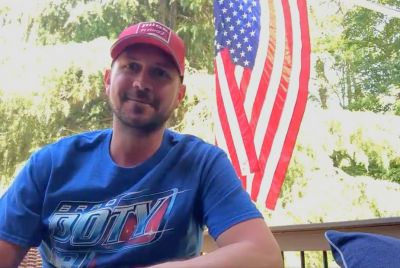Has Plebgate become Plodgate? 45 Seconds that Shock Police Credibility

It started with the briefest ill-tempered spat between police officers at the entrance to Downing Street and a minister who they stopped from cycling out through the main security gates.
In the year since, it has escalated into a major crisis of credibility for the entire police force amid suggestions officers fabricated statements and attempted to discredit the minister as part of a wider, co-ordinated campaign involving senior officers to destabilise the government which had angered the force with a programme of cuts.
It has seen eight people, including four police officers, arrested and bailed while the Crown Prosecution Service considers whether there are charges to answer. Plebgate is fast becoming 'Plodgate' - a scandal about the reputation and trust worthiness of police officers.
Now, in the latest dramatic twist, the Prime Minister has insisted the former minister, Andrew Mitchell, is owed an apology from police chiefs who should have instigated proceeding against the Downing Street officers involved in the row.
Speaking during Prime Minister's Questions in the Commons, he said the behaviour of the chief officers who had met Mitchell after the incident was not acceptable. "What the police officers said was untrue. He is owned an apology," he said.
The chief officers had claimed Mitchell had not given a full account of what happened during the original incident, but a secret tape recording made by the minister at the meeting showed he had.
Previously the Home Secretary, Theresa May, had also demanded an apology to Mitchell and said the alleged plot had undermined trust in the police.
The Independent Police Complaints Commission has already questioned the "honesty and integrity" of those police chiefs and found the West Mercia force was wrong to conclude they should not face disciplinary action for misrepresenting the meeting.
The police chiefs will appear before a powerful Commons committee next week to defend their decision amid growing demands for the creation of a new independent body to investigate complaints against the police.
This crisis all resulted from a 45 second incident last September when officers stopped the government chief whip from cycling through the main Downing Street gates He later admitted swearing but denied officers' claims he called them "plebs". As the police stood by their account, he resigned from the government.
The word "plebs" was particularly toxic because it played into the widespread view of the government as being comprised of privileged, out-of-touch individuals. Inevitably, the row became known as "Plebgate".
Since the incident last September the police account has been questioned amid allegations officers may have colluded to fabricate their version of what happened.
But what has deeply worried many is fears over exactly how far the suspected collusion has gone.
The officers at the gate have not been disciplined and the senior police chiefs who investigated the incident have been accused of misrepresenting their meeting with Mitchell and criticised for failing to take any action.
There is now a significant dispute both within the police service itself and, most damagingly, between the police and ministers and public trust in the entire police force has taken another beating.
That trust has already been undermined by a series of scandals including involvement in the phone hacking scandal, the alleged cover up of the police role in the 1989 Hillsborough football stadium disaster and the death of newspaper seller Ian Tomlinson after being pushed to the ground by a police officer during a 2009 demonstration.
© Copyright IBTimes 2025. All rights reserved.






















